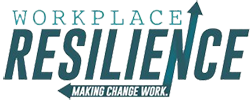I still remember going to my older son’s 3rd grade school conference. The teacher loved him and shared many wonderful stories. She relayed that he was smart, kind and had a great personality. Then she asked about a paper that he had recently brought home.
“I suppose you saw the math paper where he received a D. He was very upset about the grade and worried about what you would think of it.” I gave her a confused look and asked her when he brought it home. Apparently, it was supposed to come home in his backpack— it was 5 days later and I had never seen it. She chuckled and asked me not to come down too hard on him. Obviously, the paper had disappeared somewhere between school and home.
When I got home, I went upstairs to his room and sat down on his bed to have the talk. I told him how much his teacher raved about him and ended the story with the mystery of the missing “D” paper. I saw the look in his eyes and just waited for the explanation.
After much discussion, it was revealed that he had gotten off the bus and proceeded to take the paper and put it down the sewer drain. I’m imagining that the scenario was conjured up on the bus ride home. I suppose for a 3rd grader that was a logical way to solve the problem.
Now, I’m happy to report that my son, who’s now an adult, has learned to handle mistakes and missteps in a more responsible manner. However, in your travels through life, I’m pretty certain that you have come across a number of individuals that refuse to take accountability for their actions— they’re still throwing their “D” papers down the sewer drain. Their excuses and justifications for their actions can be downright exhausting.
Copping out on responsibility can become a habit and theme in every facet of your life. It inhibits your ability to move ahead in your career and find happiness and success in your personal life. Stop and think about someone that makes this behavior part of their daily routine. After awhile, the excuses just roll off their tongue and the more practice they get, the more proficient they become at this skill. In time, they truly believe their own explanations.
Right now, some of you are thinking that this does not describe you— but hold on a minute. Maybe you’re not a serial storyteller. However, there are times when each one of us is guilty of rationalizing our situation in order to feel better.
Take a step back and be honest. Maybe you didn’t get that sale today because the buyer was simply in a bad mood. You lost out on the promotion last week to the other employee because he always “sucks up” to the boss. You didn’t lose your goal of 5 lbs. this week because you just retain too much water. Never mind that you didn’t close the sale or you didn’t possess managerial skills or you ate more than you really should have on your diet.
We are ALL guilty of not taking accountability at some point.
The thing to remember is that your outcomes directly reflect your actions. Your success in life is in direct relation to your ability to be painfully honest with YOU. Do you make things happen or do things happen to you? A big part of your resilience in life is tied up in your skill of taking accountability for your actions. It’s realizing that you control your own destiny: your happiness and success is dependent upon you.
The next time you struggle with reaching a goal daily, weekly, monthly, or yearly, step back and give this some thought: take responsibility for your place in life.





